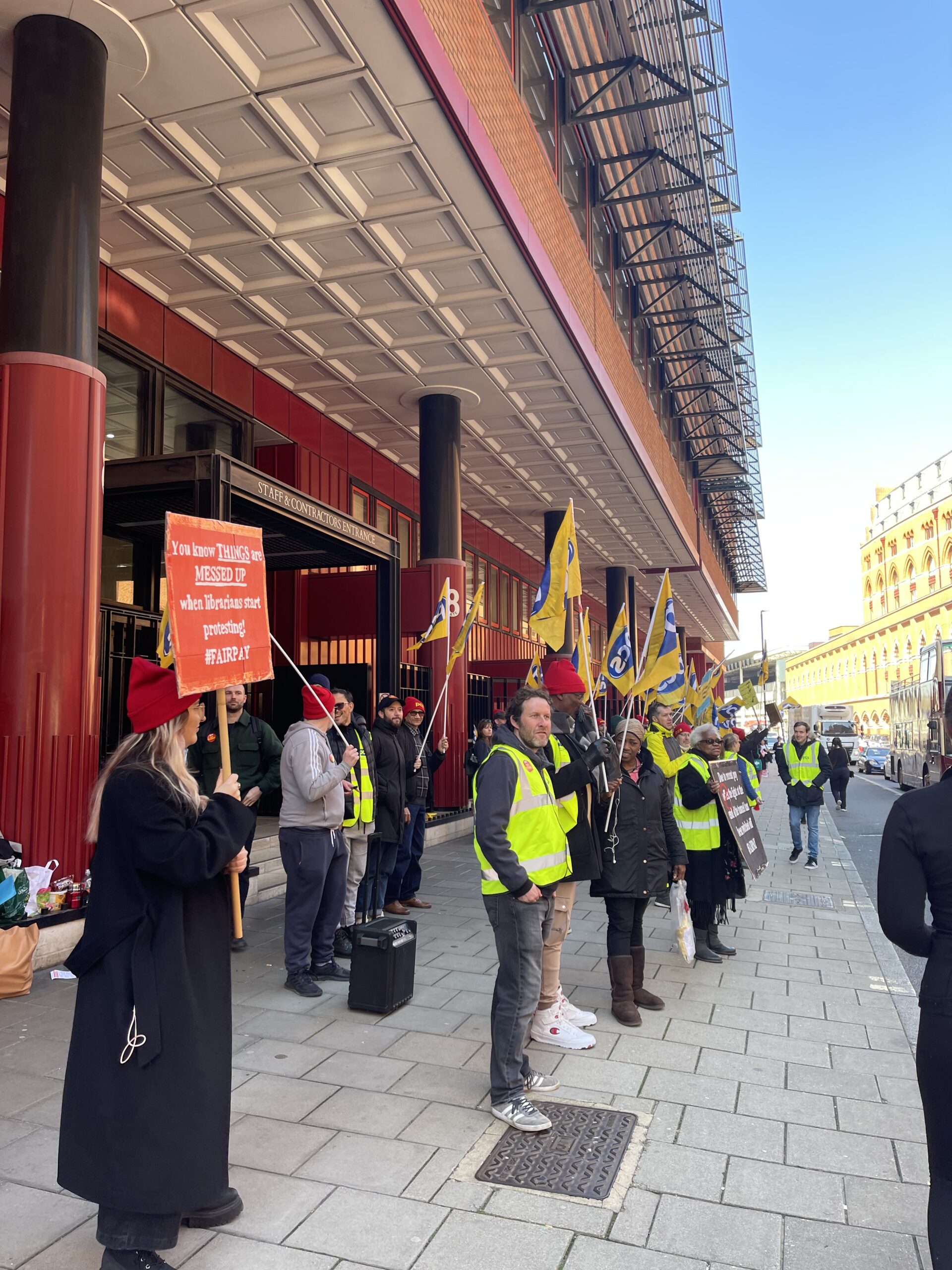
Social Activism in London
While studying abroad at University College London, I have had my eyes opened to the ways that individuals from diverse sectors participate in social activism. Strikes are very common here in the UK, as, for example, my very own professors have been taking part in industrial action as disputes over their pay continue. As my professors, who are members of the National Education Union (NEU), have been participating in these strikes at the cost of their students missing time in the classrooms, I have been able to witness firsthand the power of social activism as my teachers have been reporting that they are close to reaching negotiations for their pay raise.
Additionally, a few of the times that I studied at the British Library, I saw individuals taking action outside of the library. I approached them once and received a pamphlet on why they were taking to the streets. Individuals belonging to the Public and Commercial Services Union (museums, libraries, cinemas, galleries, royal households, palaces) were on strike at the time because they were fighting for fair pay, pensions justice, and job security. They explain, “After a decade of real terms funding cuts in the culture sector, we are now in crisis. As inflation hit 20% (12-month RPI as of Oct ‘22) our pay award for this year was less than 5% – equating to a double-digit real terms pay cut.” It makes sense they are taking strike action as, for example, food and rent prices are ever increasing in London.
Even as an affiliate student only residing in London for a duration of less than six months, I understand the importance of the UK culture sector and really sympathize with the workers who recognize that they are “working harder for less and are now struggling to guarantee the safety of our nation’s treasures.” As a study abroad student soon leaving London, I want to stay updated on the government’s reaction to these strikes.
